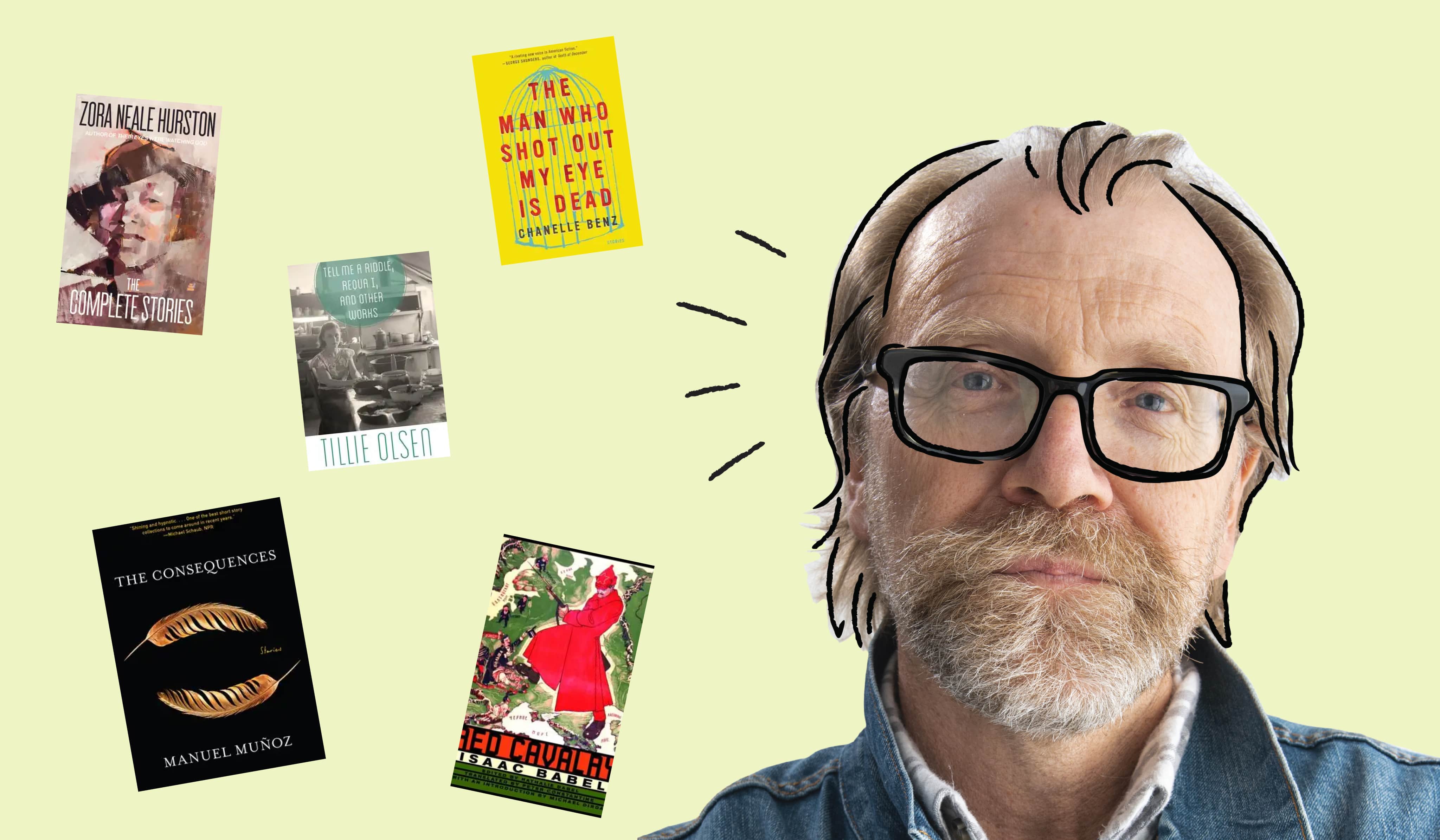- New Arrivals
Fiction
- Historical FictionCrime & ThrillersMysteryScience-FictionFantasyPoetryRomanceChildren’s BooksYoung Adult
- Biographies & MemoirsHistoryCurrent AffairsTech & ScienceBusinessSelf-DevelopmentTravelThe ArtsFood & WineReligion & SpiritualitySportsHumor
Children’s Books
Lists
Gift Cards
What To Read
My Lists
Games
The co-op bookstore for avid readers
Stories to Read at the End of the World
We are honored to share a reading list just for Tertulia readers from master short story writer George Saunders. His most recent recent collection Liberation Day brings his trademark humor and playfulness to reflections of some of the most dark and complex challenges facing humanity today.
Well, first, it’s not really the end of the world, although it sometimes sure feels like it. But one of the things a good story can do is remind us of our deeper capacities – to understand, to love, to laugh at, to accept. Here are a few stories that are speaking to me deeply right at this moment. — George Saunders, 2022
“My First Goose” by Isaac Babel – from Red Cavalry
The short story lives on the appearance, on the local scale, of those parts of the human experience that, writ large, make what we call “history.” In this story – which seems to glow across the years, given recent events in Ukraine – we see the moment when a young man first finds the seeds of violence within himself. Multiplied by thousands of similar awakenings, we get a feeling for what a war really is.
“The Gilded Six-Bit” by Zora Neale Hurston – from The Complete Stories
This is one of the most genuinely surprising stories I’ve ever read (and I won’t spoil it with details). But when a story makes us surprised, this is a testimony to the author’s alertness to the world as it is – she has refused to give into the habitual, the usual, the first-order expectation. Here, Hurston sets us up in a rich way and then goes so far beyond what we expected (while fully taking those expectations into account) that reading the story always has the strange effect of filling me with renewed respect for the endless possibilities of art, yes, but also life itself.
“I Stand Here Ironing” by Tillie Olsen – from Tell Me a Riddle, Requa I, and Other Works
More than any other story I know, this one speaks a grave and simple truth about capitalism: that it can crush dear people and force upon them lives that are less graceful and full of love than these lives might have been.
“Adela, Primarily Known as The Black Voyage, Later Reprinted as the Red Casket of the Heart” by Chanelle Benz – from The Man Who Shot Out My Eye Is Dead
Good fiction reminds us that how we say something is not separable from what it is we are trying to say. Voice, in other words, is everything; it conveys the nuance and ambiguity out of which the most intelligent communications are made: a good thing to be reminded of when so much of our “communication” is surficial and agenda-laced and format-restricted and performative and Like-seeking. Benz is one of the most gifted writers of voice we have, and this particular story is a wild, mad, joyful celebration of verbal panache and precision that also tells us deep, complicated truths about racial injustice.
“Anyone Can Do It” by Manuel Munoz – from The Consequences
A gifted writer can help us work down through layers of specificity, from “item on the news” or “current political issue” to “actual human being, about whom I find myself caring.” In this story, and in this collection, Munoz writes about Mexican and Mexican-American farmers in the Fresno area with such precision and heart that they come to feel like dear friends of ours, in whom we see ourselves; in other words, this book reminds us that a collection of stories can be a compassion-generating machine.

